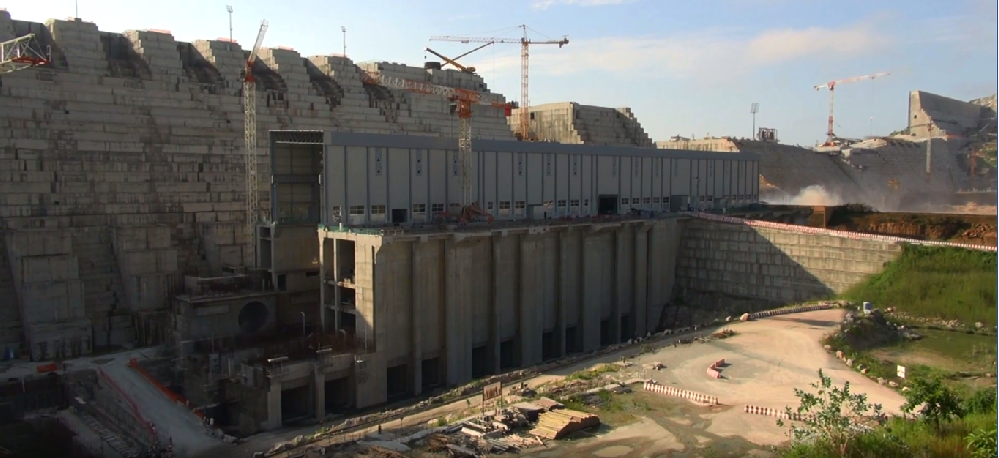US Shouldn’t Take Sides in Ethiopian Dam Negotiations, Says American Law Professor - ENA English
US Shouldn’t Take Sides in Ethiopian Dam Negotiations, Says American Law Professor

Addis ababa, April 13/2020(ENA) US shouldn’t take sides in Ethiopian dam negotiations that have been taking place between Ethiopia, Sudan and Egypt, the American Professor of Law and Professor of Economics Tom Campbell wrote on Los Angeles Daily News yesterday.
The author, who served on the African Subcommittee of the House International Relations Committee when he was a Member of Congress but left the Republican Party in 2016, is in the process of creating a new party in California, the Common Sense Party.
Tom Campbell argued that a totally unnecessary conflict is growing in Africa between Egypt and Ethiopia that may grow larger, pitting the Arab League against the African Union.
The following is full version of the article published by the Los Angeles Daily News.
The United States had been a constructive force in fostering compromise and, to the extent agreement was not immediately possible, in containing the conflict to only the three nations directly involved: Egypt, Ethiopia and Sudan.
At the end of February, however, the U.S. moved from the position of neutral mediator to becoming a partisan of Egypt. The U.S. should quickly move back to its earlier posture. America can contribute to avoiding more serious conflict, but the opportunity for doing so is fast escaping.
The dispute concerns the Grand Ethiopian Renaissance Dam, under construction inside Ethiopia close to the Sudanese border on the Blue Nile River.
For half a century, Ethiopia has dreamed of a dam that would generate hydro-electricity for its population of over 100 million. The Blue Nile Gorge is an ideal topographical location. Mountains on either side of the Blue Nile allow for a deep, large-volume reservoir with a small surface area resulting in very little evaporation. The Ethiopian Dam could provide enough clean, renewable electricity for Ethiopia with substantial amounts left over for export to neighboring countries.
Since the dam is not for irrigation, no reduction in water volume received by Sudan and Egypt, the two countries downstream of the dam, need occur except during the time it takes to fill the reservoir.
Egypt had originally opposed the dam entirely, claiming (falsely) that international law gave it veto rights over any Nile dam upstream of Egypt. For years, America had blocked World Bank financing of the dam, at Egypt’s request.
Ethiopia went to its own people for financing: selling bonds and taking money from government employee salaries. Ethiopia started construction in 2011.
It is now 71 percent complete. It will be the largest electricity-generation project in Africa. With the dam under construction, America pressured Egypt to withdraw from its absolutist position. Ethiopia in return agreed to fill the dam only during the rainy season, July-August, so as not to diminish water flow to Egypt. Egypt asked the US to mediate the remaining unresolved issues in Washington last January. Expectations were high for a resolution.
Then, everything changed. On February 27, the U.S. announced, “Consistent with the principles set out in the DOP, and in particular the principles of not causing significant harm to downstream countries, final testing and filling should not take place without an agreement.”
The DOP (Declaration of Principles) was reached by Egypt, Ethiopia, and Sudan in 2015. It was aspirational; it did not give any country a veto over the dam. Yet that is what the U.S. now appears to advocate. The choice of US as mediator, which Egypt had urged, led to America supporting an Egyptian veto – giving rise to suspicion that that was what the U.S. and Egypt had in mind all along. [ ENA Editor's Note – Ethiopia has consistently been describing the role of the U.S and others as only observes but not mediators] U.S. opposition could freeze the market for more Ethiopian bonds needed to finish the remaining 29% of the project.
As Ethiopia walked out in protest, Egypt obtained a resolution backing its position from the Arab League, including support from the African states with sizable Arab populations. Ethiopia turned to South Africa, the chair country of the African Union, to replace the U.S. as mediator.
The conflict is set to escalate to one between the Arab states of Northern Africa and the non-Arab nations of Southern Africa. If America resumed its position of neutrality, the conflict could be de-escalated from where it is now heading: one between blocs of nations on the African continent.
Approximately 65 percent of Ethiopians do not have reliable electricity. Without electricity, Ethiopia cannot respond effectively to the natural disasters that it regularly encounters: including recurring famine and disease. No American can doubt that diseases spawned in one country can threaten ours.
America should facilitate the Ethiopian dam for Africans’ good and ours.